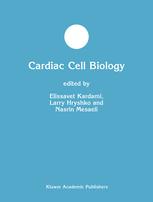

Most ebook files are in PDF format, so you can easily read them using various software such as Foxit Reader or directly on the Google Chrome browser.
Some ebook files are released by publishers in other formats such as .awz, .mobi, .epub, .fb2, etc. You may need to install specific software to read these formats on mobile/PC, such as Calibre.
Please read the tutorial at this link: https://ebookbell.com/faq
We offer FREE conversion to the popular formats you request; however, this may take some time. Therefore, right after payment, please email us, and we will try to provide the service as quickly as possible.
For some exceptional file formats or broken links (if any), please refrain from opening any disputes. Instead, email us first, and we will try to assist within a maximum of 6 hours.
EbookBell Team

4.1
100 reviewsCardiac cell biology has come of age.
Recognition of activated or modified signaling molecules by specific antibodies, new selective inhibitors, and fluorescent fusion tags are but a few of the tools used to dissect signaling pathways and cross-talk mechanisms that may eventually allow rational drug design. Understanding the regulation of cardiac hypertrophy in all its complexity remains a fundamental goal of cardiac research. Since the advancement of adenovirally mediated gene transfer, transfection efficiency is no longer a limiting factor in the study of cardiomyocytes. A limiting factor in considering cell transplantion as a strategy to repair the damaged heart is cell availability at the right time. Cardiac gap junctions, intercellular communication channels that allow electrical and metabolic coupling and play an important role in arrhythmogenesis are now understood to be exquisite sensors of cardiac change.
The reports in this volume incLude elegant studies that made use of cutting edge technological advances and many specialized reagents to address these issues.